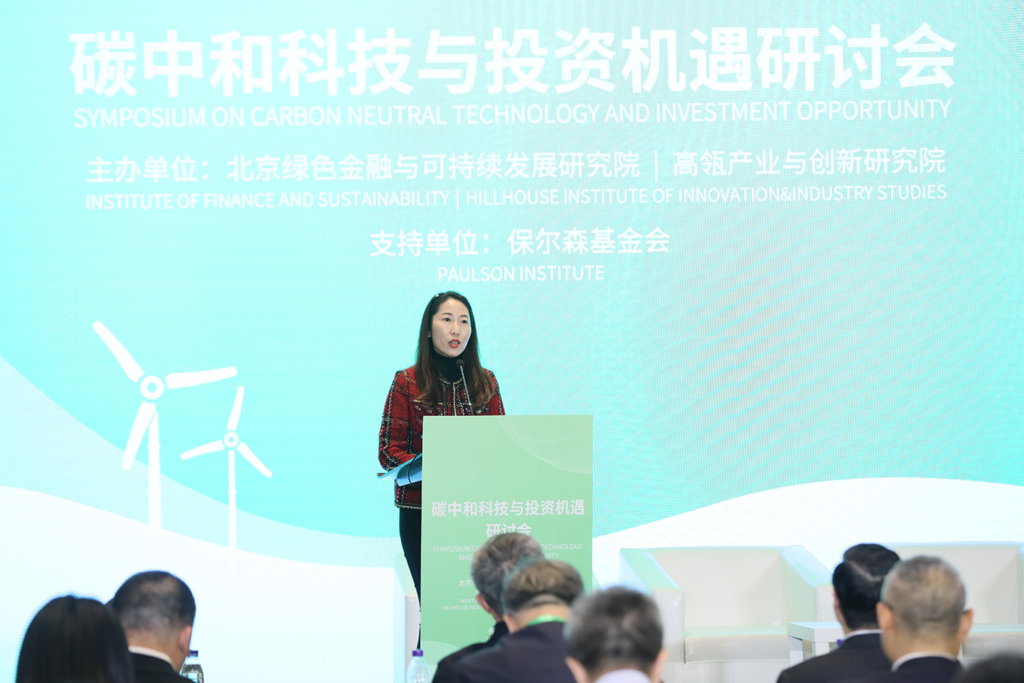The Paulson Institute supported the IFS and Hillhouse Roundtable on understanding how China’s carbon goals impact industry.
China’s path to achieving its carbon peak and neutrality goals will be challenging, but experts are actively engaged in discussions on what potential mechanisms for success might include. The transition to low carbon technologies is one important pathway, and it was the subject of a closed-door discussion cohosted by the Beijing Institute of Finance and Sustainability (IFS) and Hillhouse Institute of Innovation and Industry Studies and supported by the Paulson Institute on March 17, 2021.
Gathering experts, academics, and financial industry representatives, the session focused on opportunities and challenges as China prioritizes carbon neutrality, and in that context, how companies and financial institutions can better understand their role and more effectively participate in markets and society as these changes happen.
Gracie Sun, Senior Advisor of the Paulson Institute and Managing Director of the Green Finance Center, spoke on international climate action and noted, “The Paulson Institute has been in close communication with partners in all major countries and regions and is committed to advancing market-based solutions to support global cooperation and development in climate change and green and low-carbon investments.”

Sun added, “Green and low-carbon investments needed to achieve carbon neutrality in China over the next three decades should be in the hundreds of trillions of RMB. Government funds are far from meeting such a huge funding gap; therefore, the development of green finance is crucial.” She affirmed the necessity of formulating sound financial policy that creates good incentives and effective regulatory mechanisms along with the essential need to innovate and experiment with green and low-carbon technologies in order to identify valuable investment targets. She continued by stating that, “Only through the coordinated development of these two aspects can we better guide private-sector funds to develop the green and low-carbon industries needed to achieve carbon neutrality.”
Key areas of decarbonization such as traditional energy versus new energy, power grid transition and energy storage, and zero-carbon buildings were part of the discussions at the session. Participating carbon and sustainability experts shared their insights on moving towards carbon neutrality with industry stakeholders and had an in-depth dialogue and exchange on how to promote transition and development of related industries. This left industry participants with reference points for investment and greater knowledge about how carbon neutrality developments will impact their business.
Green Finance Center, Paulson Institute



